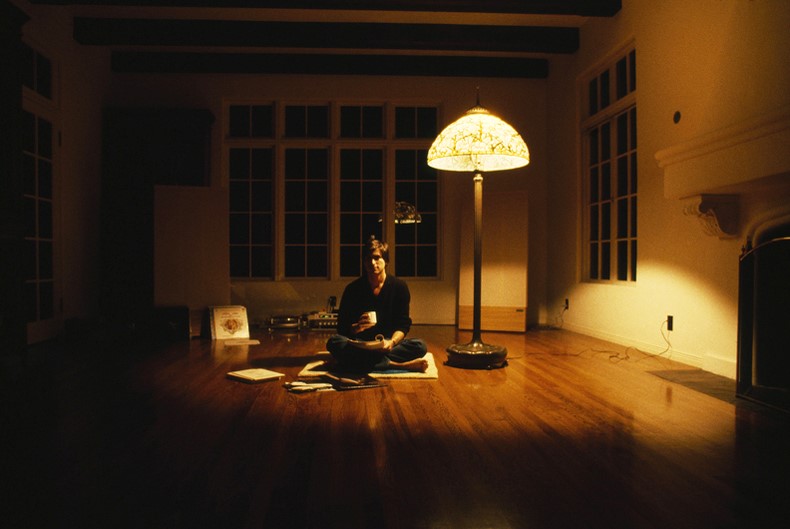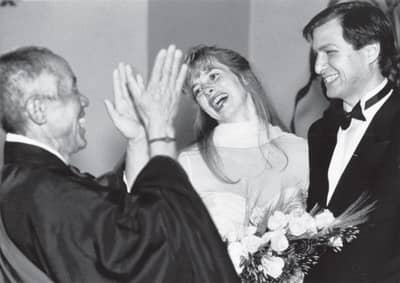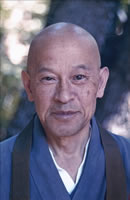Long ago I read iWoz, about the life of Steve Wozniak, but I had never had the chance to read any book about Steve Jobs. Last December I bought the official biography of Steve Jobs by Walter Isaacson and I loved how it is written, it is addictive!
I was especially interested in what happened during the famous Steve Jobs trip to India. It turns out that during his two years in college, he spent most of his time reading about eastern philosophy and religions and talking about them with his friend Daniel Kottke. When he became 19 years old he grew tired of college and started a technical job at ATARI where he barely spent some months. Then he decided to travel to India with Daniel Kottke in search of their “spiritual leaders”.
They were unable to find any “spiritual leader” that could captivate or enlighten them; the truth is they spent months travelling around in India without any destination in mind. The most interesting event was when an Hindu monk approached Steve Jobs with a razor and without any warning shaved his head.
When he returned, he came back to work at ATARI until he was able to sell the first Apple I computers with Wozniak. Five years later Apple would IPO making the 300 employees of Apple multimillionaires. During those years, apart from working, Steve Jobs started to practice Zen meditation at the San Francisco Zen Center; there he got to know the monk Kobun Chino Otogawa, who would become his mentor and friend during the rest of his life. Steve Jobs was said to be one the disciples that spent most hours meditating and in occasions he took several free days to go to Tassajara (the first Zen temple in United States) to sit down in front of a wall and meditate during weeks. Steve enjoyed the idea of using his mind to inspect his mind. He used introspection to change the way his mind worked, something known in psychology as metacognition.
[DC note: Jobs sat at the Haiku Zendo in Los Altos, not the SFZC, not at Tassajara. He went to Tassajara with Daniel Kottke some and Kobun for the baths and ambience and to look around. He and Kottke visited Green Gulch once and were shown around by Reed alum Nick Charles..].
Kobun Chino Otogawa, born in Kyoto, spent the first 30 years of his life in Japan, three of them in the main temple of the Sōtō Zen sect [Eiheiji]. At the end of the 60s he moved to United States with the mission to have a better understanding of Zen in the Western world. Besides Zen meditation, the specialties of Kobun were writing haiku poems and shodo, caligraphy. We all know that Steve Jobs was a fan of calligraphy, for him it was reallly important that the fonts on computer screens were beautiful.
DC Note: Kobun came to America to be the priest at the Lost Altos Haiku Zendo though by the time he arrived in June of 1967, we needed him at Tassajara where he was most the time for two years. Jobs learned and studied calligraphy at Reed College.
Buddhist monk Kobun Chino Otogawa was the spiritual mentor of Steve Jobs as
well as his close friend during more than 20 years. Kobun Chino Otogawa met
Steve Jobs for the first time when he had just come back from his trip to
India [1974]. Kobun Chino Otogawa found in Steve Jobs an outstanding disciple and
Steve found in him a mentor to admire. Their relationship lasted for more
than 20 years until Kobun Chino Otogawa died in 2002. Before founding Apple
with Markkula and Wozniak, Steve Jobs had been considering what to do with
the rest of his life, one of the options that he liked the most was to
dedicate himself to the Zen exclusively. In a key moment in his life, Kobun
Chino Otogawa advised Steve to do the opposite, he told him to follow his
heart, he told him that “He would find the ZEN in his life dedicating
himself with passion to what he liked the most”, he told him that “He could
still follow an spiritual life at the same time that he managed a business”.
Steve was convinced and started the adventure that would take him to
revolutionize several industries (computing, telephony, music…).

Steve Jobs meditating.
Kobun Chino Otogawa was also present in another key moment of Steve Jobs life; he was in charge of celebrating the wedding ceremony of Steve Jobs and Laurene Powell according to the Sōtō Zen ritual. Kobun was like a father to Steve; during the NeXT year Steve offered him a job but Kobun just accepted to occupy an “Advisor” role. Kobun Chino Otogawa was the “Spiritual Advisor” of the company until it was acquired by Apple.

Kobun Chino Otogawa happily clapping after marrying Steve and Laurene.
The Zen was an essential tool for Steve Jobs for designing Apple products. A basic rule for Steve Jobs was to always simplify as much as possible, eliminating any element that was not strictly necessary. The iPod, whose simple, beautiful and intuitive design supposed an authentic revolution when it was released, was the first Apple product that I bought. At the moment I am the owner of around 15 Apple products. What I like the most about Apple products is that, as a whole, their simplicity and ease of use allows me to be able to be more creative and productive when using them.
The iPod shows us, through its simplicity, how much Steve Jobs appreciated the Zen.
Steve met Kobun Chino Otogawa for the first time at the end of the 70s but he didn’t travel to Japan until the beginning of the 80s. He had to go to Japan to look for the most appropriate floppy disk drive for the first Macintosh. In that trip he met for the first time Aiko Morita, the founder of Sony and could try exclusively the first prototypes of the Walkman, a device that impressed Steve Jobs. Another thing that captivated Steve Jobs were Sony factories (which afterwards he emulated when building Apple factories). Steve Jobs admired Aiko Morita but in many occasions he criticized the unrefined designs of Sony products. The first Macintosh was one of the first computers to include a 3.5” floppy disk drive.
Besides doing business, Steve Jobs had the chance to travel around Japan visiting Kyoto and Soto Zen Eiheiji, the temple where Kobun Chino Otogawa had been living before moving to United States. Steve Jobs came back to Japan several times during the rest of his life, most of the visits were business trip but he almost always had time to escape to Kyoto, his favourite Japanese city:
Steve Jobs always stayed in the Hotel Okura and loved the sushi of the restaurant on the lower floor. The Hotel Okura appears in the novel 1Q84 by Haruki Murakami, it is the hotel where Aomame goes to visit the leader to offer him massage services.

Entrance to the Hotel Okura, where Steve Jobs liked to stay when he was
visiting the land of the Zen.
Kobun Chino Otogawa, Sony’s Aiko Morita, the Zen and Japan were a big influence in Steve Jobs life. Another Japanese person that Steve Jobs admired was Issey Miyake, a Japanese designer who seeks elegance through simplicity, and who became quite close to Steve Jobs and eventually would become the designer of the famous black turtleneck sweater that Steve wore almost daily during the last years of his life.
Spiritual life, products with a simple but revolutionary design, Zen, Japan, simplicity, Buddhism, intuition, vision, attention to detail… but at the same time it turns out that Steve Jobs had really bad manners even with friends, as he was vindictive, treacherous, narcissistic, etc. It looks like Steve Jobs just chose the Buddhist values he liked better and forgot that Buddhism is based on empathy and compassion. I would really like to know what was the sincere opinion that Kobun Chino Otogawa had about him, most likely he liked him just as he was, with his defects and strengths that brought him to create what is today the largest company in the world by market capitalization.
